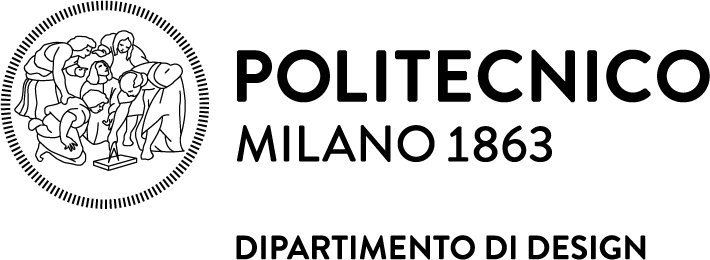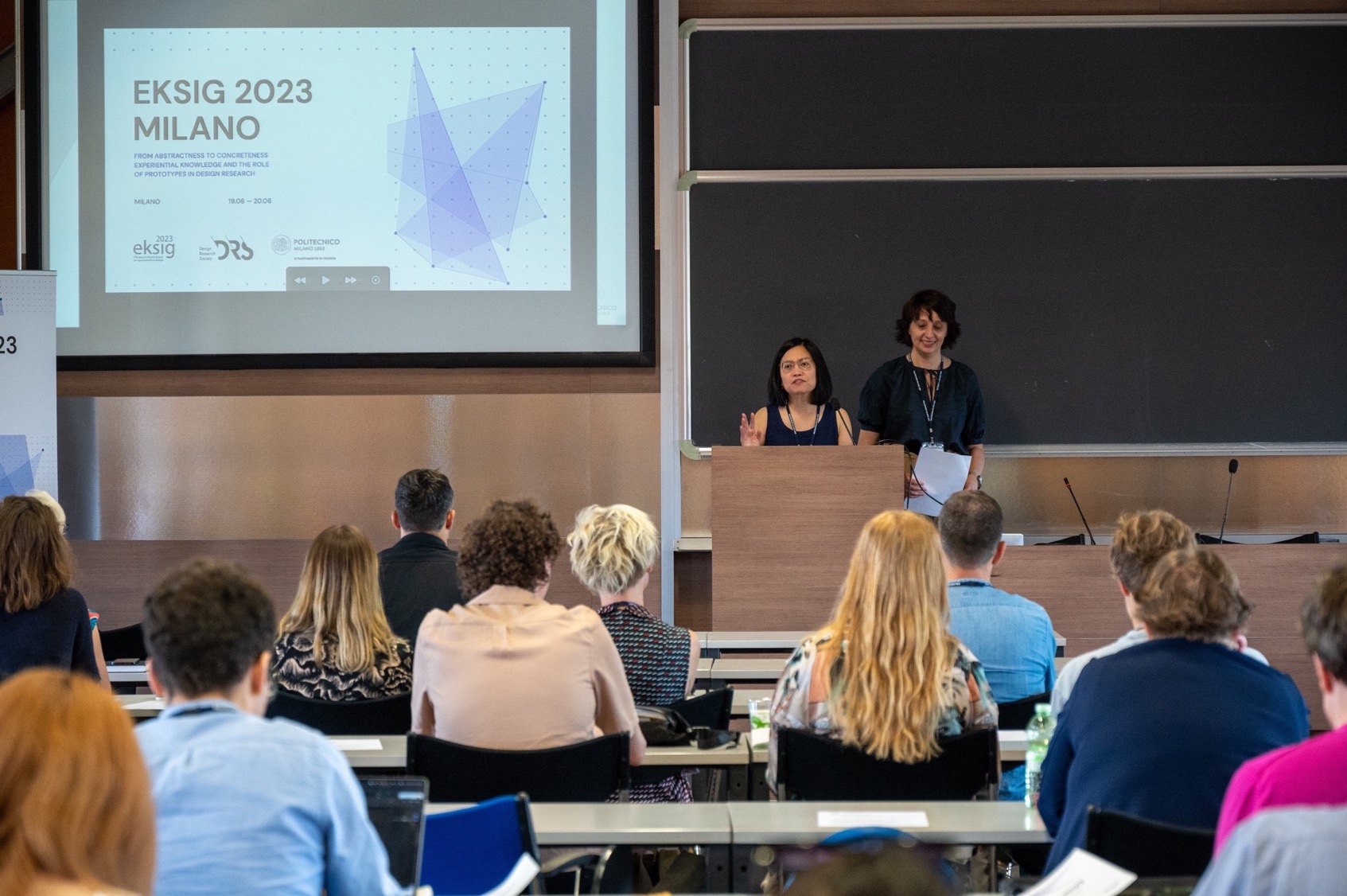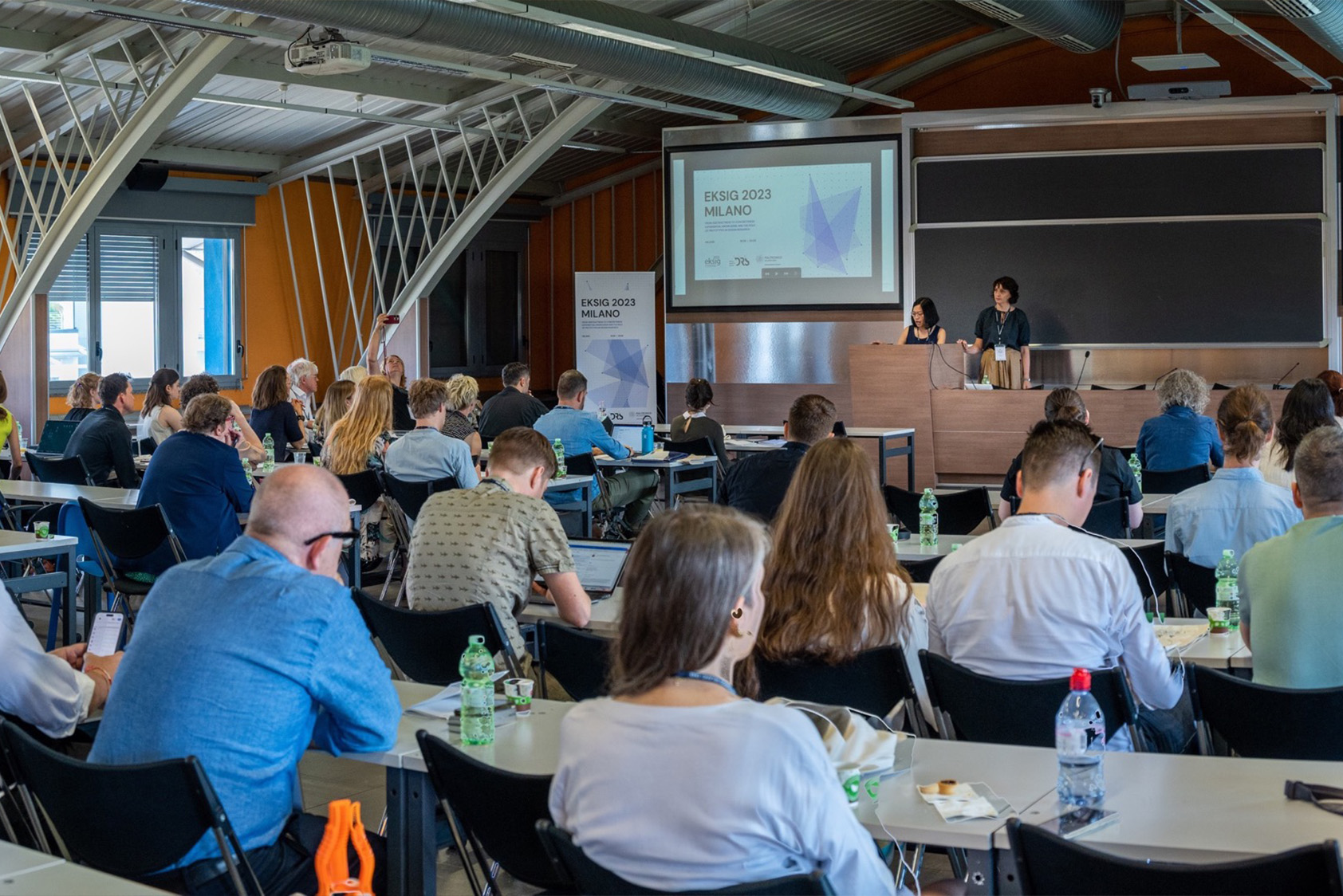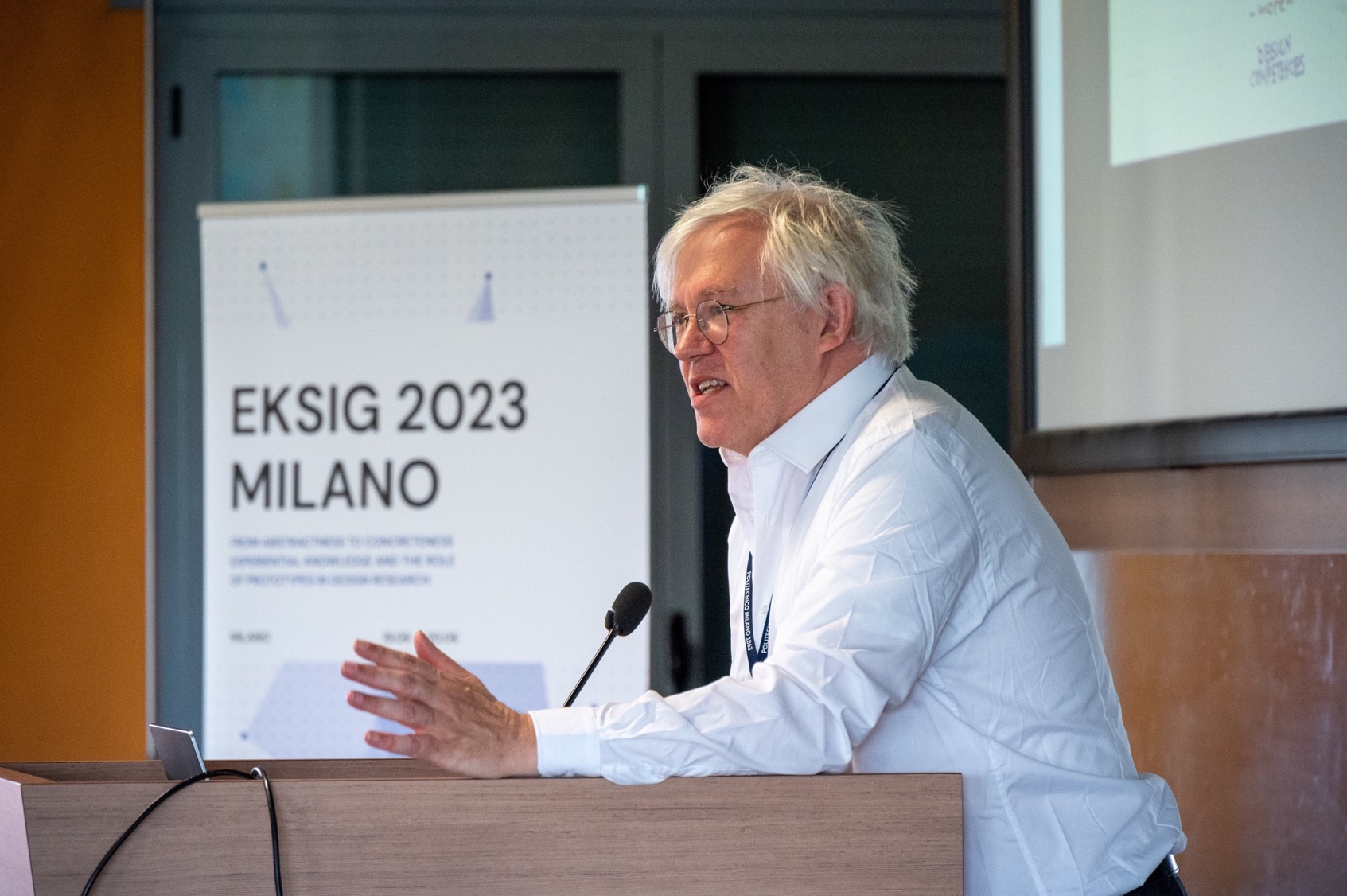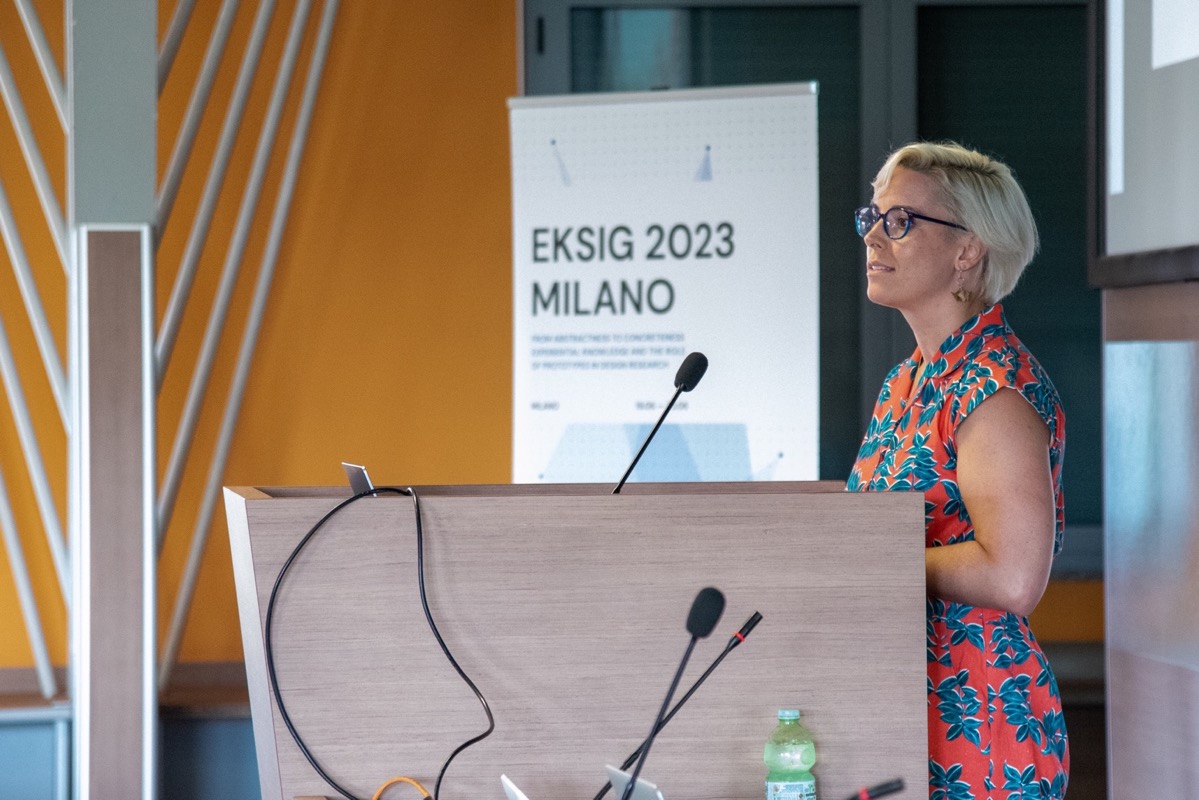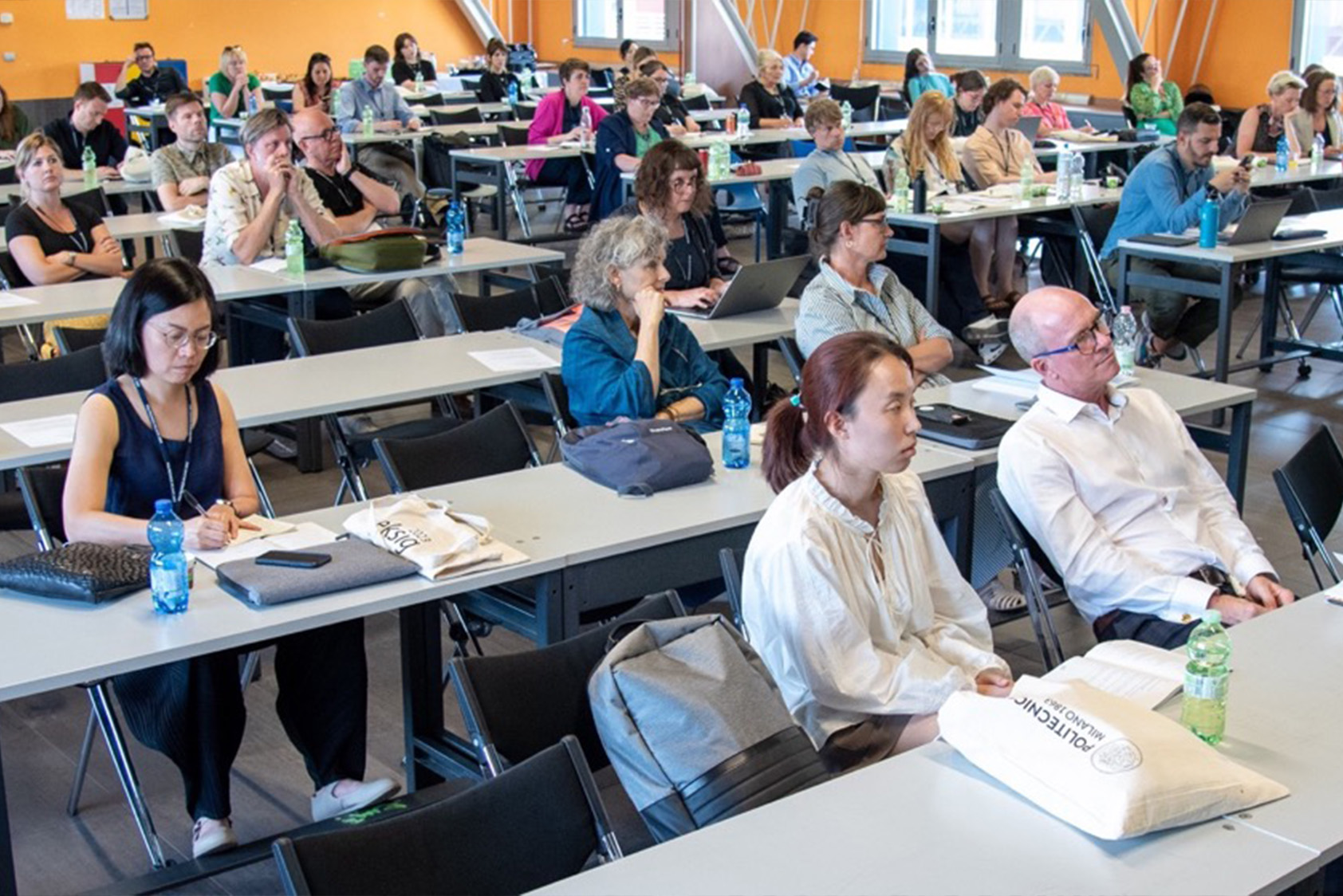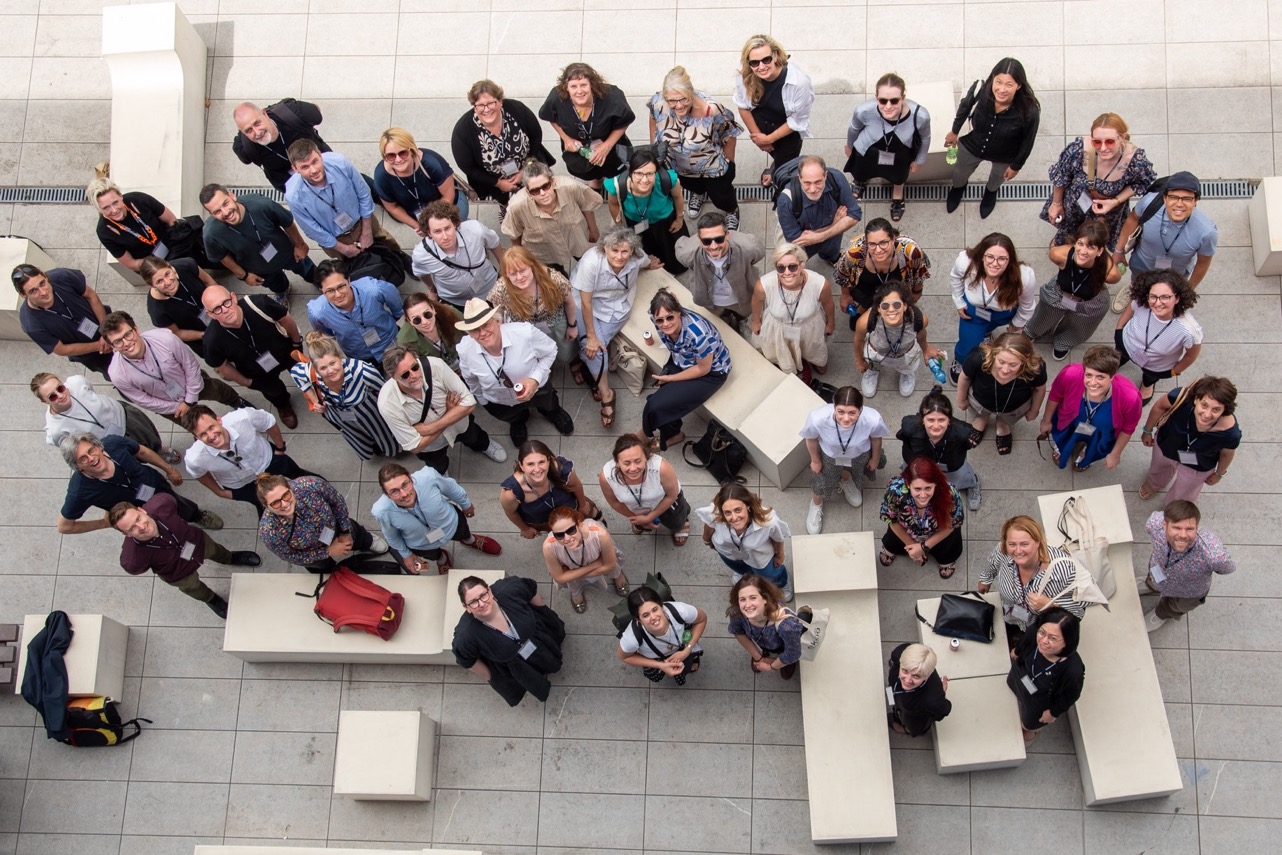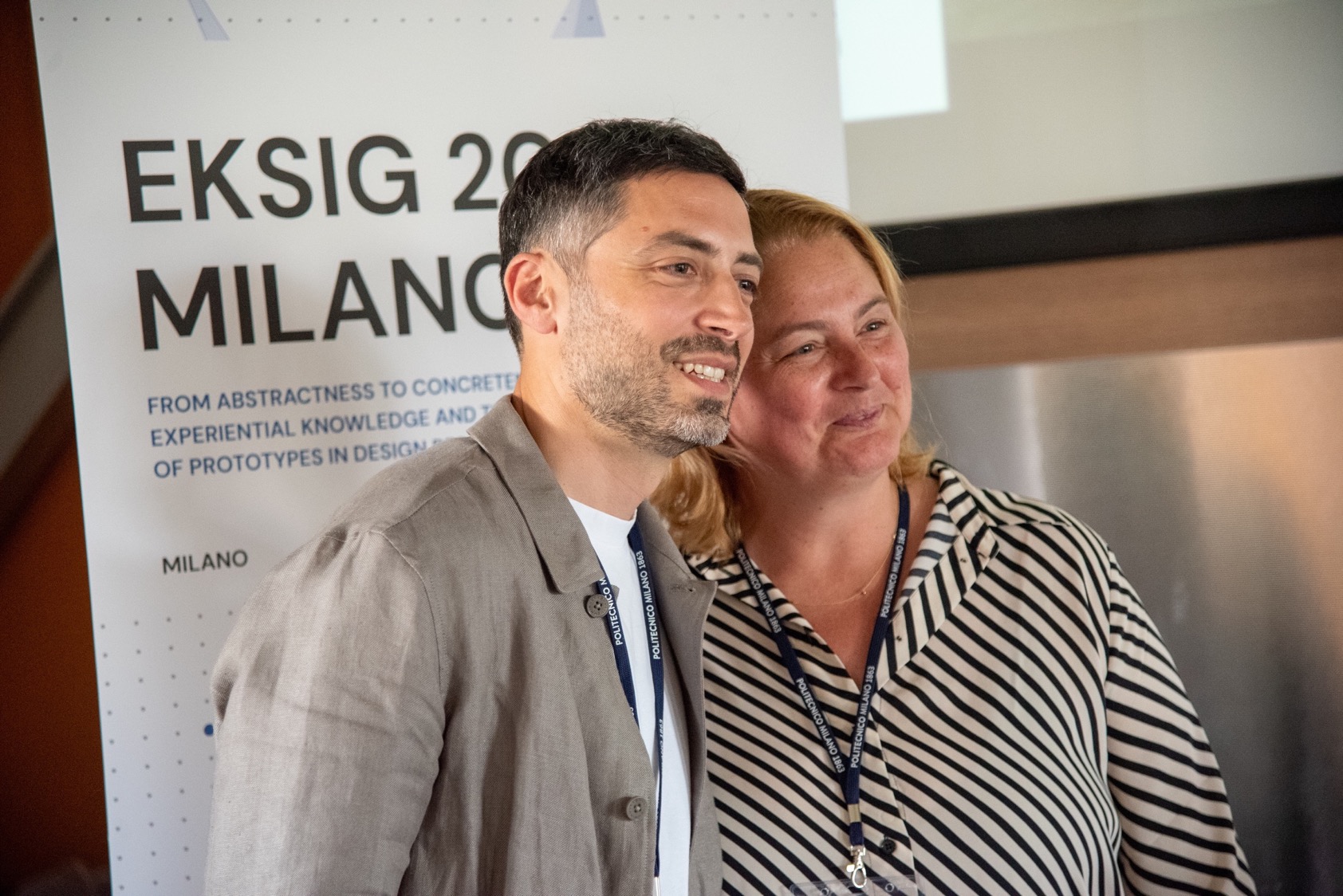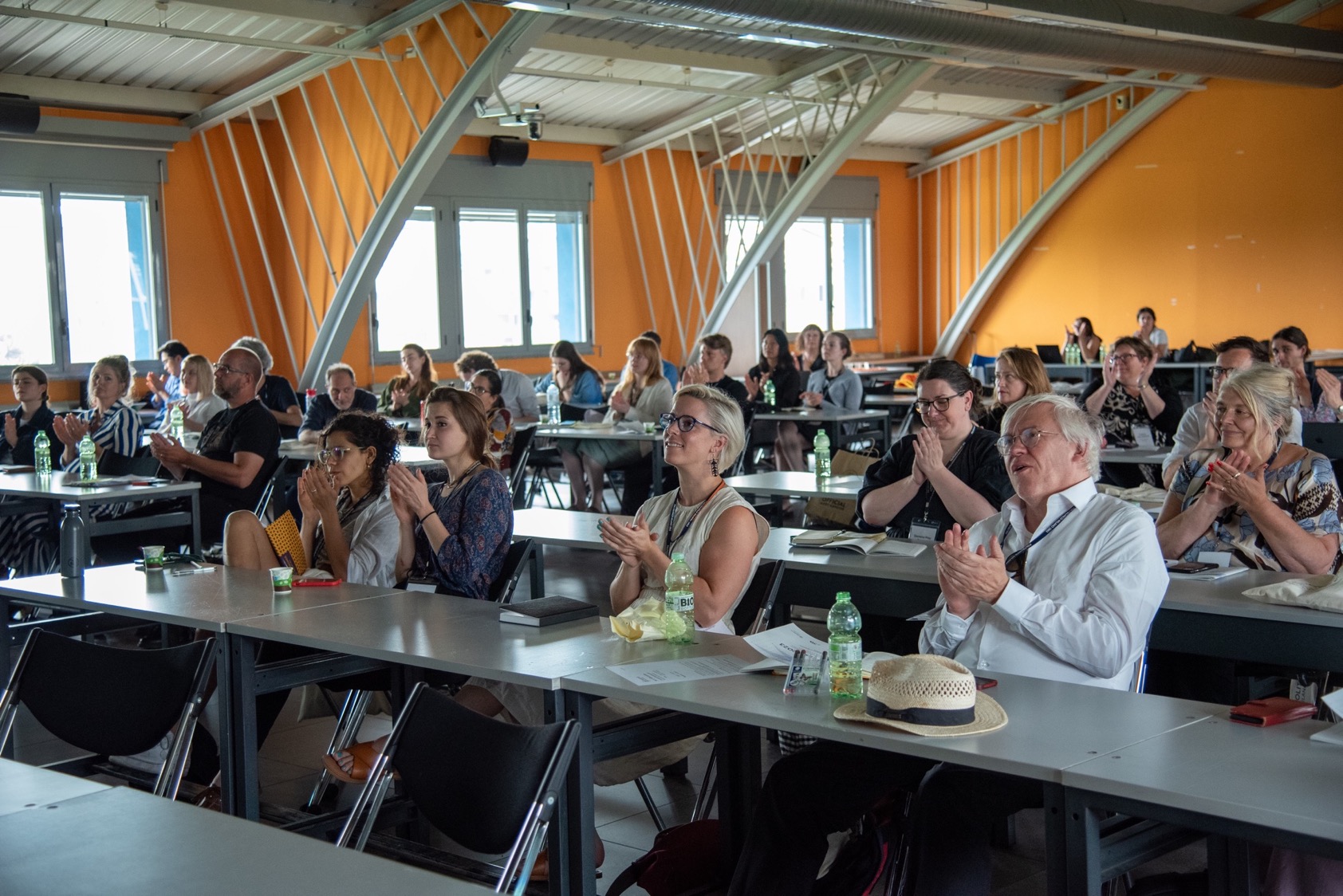Photos from the conference
Eksig 2023 - Register on Conftool
“From Abstractness to Concreteness - experiential knowledge and the role of prototypes in design research”, International Conference 2023 of the DRS Special Interest Group on Experiential Knowledge (EKSIG) is hosted by the Department of Design, Politecnico di Milano, Italy.
The conference aims to provide a forum for debate about prototypes as a mean for knowledge generation by professionals and academic researchers, exploring the role and relationship of generating and evaluating new and existing knowledge in the creative disciplines and beyond.
Dates: Monday and Tuesday, 19-20 June 2023
Venue: Department of Design, Politecnico di Milano, Italy
Confirmed keynote speakers:
● Kathryn Marinaro, Creative Director at Argodesign
● Aldo Sollazzo, Noumena
● Prof.dr. P.J. Stappers, TU Delft, Netherlands
EKSIG is part of a programme of Special Interest Groups set up by the Design Research Society (DRS) in 2007 to facilitate international exchange and advance in relevant areas of design. EKSIG is concerned with understanding and managing experiential knowledge in research and professional practice in design to clarify fundamental principles and practices regarding research degree regulations, requirements, and methodology.
EKSIG conferences serve to address specific themes by bringing together researchers and practitioners from various disciplinary backgrounds, fields of knowledge production, and methodological approaches to engender challenging multi vocal debates around these themes and facilitate exchange and cross fertilisation between the creative and other practice-led disciplines.
Programme
Monday, 19th June 2023
Location: Aula Castiglioni
Location: Aula Castiglioni
Chair: Silvia Deborah Ferraris, Politecnico di Milano
Location: Aula Castiglioni
Location: Aula Castiglioni
Chair: Ayşe Özge Ağça, University of Southern Denmark
Location: Room B201
Chair: Francesco Leoni, Politecnico di Milano
Location: Terrace 1
Location: Aula Castiglioni
Chair: Michele Melazzini, Politecnico di Milano
Location: Room B201
Chair: Sofia Soledad Duarte Poblete, Politecnico di Milano
Location: Aula Castiglioni
Location: Aula Castiglioni
Chair: Alessia Romani, Politecnico di Milano
Location: Room B201
Chair: Renata Deszo, Moholy-Nagy University of Art and Design
Tuesday, 20th June 2023
Location: Aula Castiglioni
Chair: Mariana Fonseca Braga, Lancaster University
Location: Room B201
Chair: Francesca Mattioli, Politecnico di Milano
Location: Aula Castiglioni
Chair: Caterina Dastoli, Politecnico di Milano
Location: Room B201
Chair: Peter Cleveland, Auckland University of Technology
Location: Terrace 1
Location: Aula Castiglioni
Location: Aula Castiglioni
Chair: Elena Spadoni, Politecnico di Milano
Location: Room B201
Chair: Giorgia Burzio, Politecnico di Milano
Location: Aula Castiglioni
Chair: Silvia Deborah Ferraris, Politecnico di Milano
Location: Terrace 1
Conference theme
Prototype and prototyping play a key role in experiential knowledge since they support the interconnections and collaboration among researchers and practitioners in many design fields. The role of prototypes in design research is characterised mainly by the general function of representing ideas and giving intelligible form to undetermined and abstract concepts pertaining to design solutions. Such a principle of transition from vagueness to clarity illustrates views on the role of prototypes which dot the diverse landscape of design research. Indeed, the evolution of design research in the past twenty years has led the path to a wide range of new possible prototype applications.
Originally, in the industrial context, prototypes were made to test, evaluate, and improve the product until the final design and production phase. When design became an academic discipline, the scope of its enquiry expanded, embracing new areas of interest (i.e., sustainable design, materials design, participatory design, service design, user experience design, etc.), and their methodologies and scopes. During this evolution, the role that prototypes play in design research started to be questioned.
Indeed, nowadays, the role of the prototype encompasses several possibilities that link to the context and aim of the design research. When a general aim of the investigation is to develop a new design solution and make it real and available to users at the end of the process, prototypes support the transition from the idea to the final product. In this realm, prototypes play a crucial role, as they visualise, validate, experiment, and create such new solutions. Interestingly, prototypes for this kind of design research can be simple paper models that anticipate interactions up to complete working prototypes that are very close to the final product. In the digital field, provisional solutions are released on the market and updated afterwards. Prototypes, in this case, merge with the final products. New boundaries are broken between a final design and what is not.
Furthermore, the products that designers call to envision are becoming more and more complex. They are equipped with sensors, processors, and connected devices that support the interaction with digital interfaces, applications, and complex services. Hence, prototypes are meant to support design processes that rely on the supplementation of new kinds of expertise – such as user experience design, interaction design, material design and computer science – besides those traditionally integrated – such as product design, mechanical and electronic engineering). In this regard, the prototype embodies the translation of different design languages into a developing concept.
Moreover, design research that explores and discusses possibilities might go beyond the development of concrete solutions and tackle significant issues (i.e., the impact of technology on society; climate change, social innovation) to reach new understating and develop new knowledge. This kind of design research usually occurs in academia and requires exploratory and speculative studies. Some of this design research is about tangible objects or is based on material experimentations. Typically, prototypes play an important role in the first explorative phases, in this realm since they enable the transition from abstract to concrete through immediate and factual experience. Designers research by envisioning solutions, imagining possible futures, exploring new fields, and feeding the design discourse with emerging contemporary issues and fictional scenarios.
Overall, the multifaceted landscape of today’s design research opens to a wide range of meanings that define what a prototype is and does. The discussion on prototypes’ identity is open. Instead of seeking to find an ultimate definition of prototype and its role in today’s design research, the conference aims at eliciting a conversation around the current and multiform panorama of experimentations around and with prototypes.
The Call for Papers encourages contributions with the following:
- What are the new roles of prototypes in these evolutionary pathways in design research?
- How do new sophisticated, integrated, and advanced prototypes support research in various areas of design?
- How do different research contexts (practice, R&D, and academia) collaborate in design research due to the making and use of prototypes?
- How do prototypes enable the creation of theoretical knowledge and support speculative research?
- How do prototypes enable the creation of practical knowledge and support empirical research?
- How do prototypes enable the exploration of new research fields?
Keynote speakers

Kathryn Marinaro — Argodesign, Creative Director
Kathryn Marinaro is an award-winning Creative Director who envisions the future and develops products and strategies for a wide variety of clients at argodesign. She is the author of Prototyping for Designers, published by O’Reilly, and has employed user-centered methodologies to create and iterate on impactful experiences in health wearables, AI interaction patterns, AI image recognition and training interfaces, and cloud development tools, while working on world-class design teams like IBM Watson Visioneering and IBM Mobile Innovation Lab. She has gained recognition as one of Austin’s Top 50 Female UX Designers and as part of the Advisory Board for the inaugural Austin Design Week. She’s been featured in articles in Fast Company, Time Out New York, Architect Magazine, ArtInfo, Make Magazine, and the Visual Arts Journal.
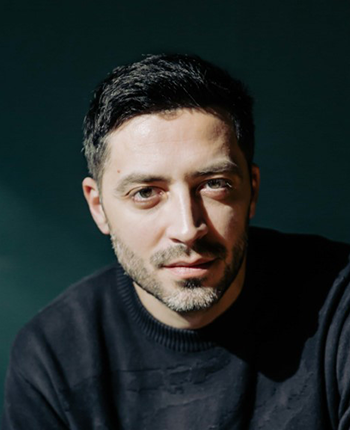
Aldo Sollazzo — Noumena, Founder and CEO
Aldo Sollazzo is an Italian entrepreneur and innovator, expert in robotics, computer vision, and computational design. He is the CEO of Noumena since 2011, a data-driven company implementing computer vision and machine learning to study and analyze spatial dynamics.
As part of the Noumena Group, he is also the director of Reshape, a platform focused on the industrial application of material-driven sustainable technologies, and of LAMÁQUINA, a large-scale 3D printing factory, shaping new architectural solutions integrating advanced manufacturing and computation.
At the Institute for Advanced Architecture of Catalunya in Barcelona, he is the Director of the Master in Robotics and Advanced Construction.
In 2019 Aldo received, from the Italian President of the Republic, the title of Knight of the Order of the Star of Italy for the promotion of national prestige abroad as a recognition of his scientific and technological activities.
Aldo has made many appearances as a guest speaker at Conferences and University Seminars, amongst them European Conference on Computer Vision, Barcelona Urban Tech, Future City Summit, The Venice Biennale and TEDx Barcelona.

Pieter Jan Stappers — TU Delft, Netherlands
Pieter Jan Stappers is professor of Design Techniques at Delft University, Faculty of Industrial Design Engineering. His research and teaching focus on the connections between research and design, such as techniques for user participation (codesign and contextmapping), and the role of doing design as a part of doing research (research through design). Key terms include perception, creativity, visualisation, empathy, systems thinking, and prototyping.
Attend
Dates
Monday and Tuesday, 19-20 June 2023
Venue
Department of Design, Politecnico di Milano, Italy
dipartimentodesign.polimi.it
Via Durando 10, 20138, Milano
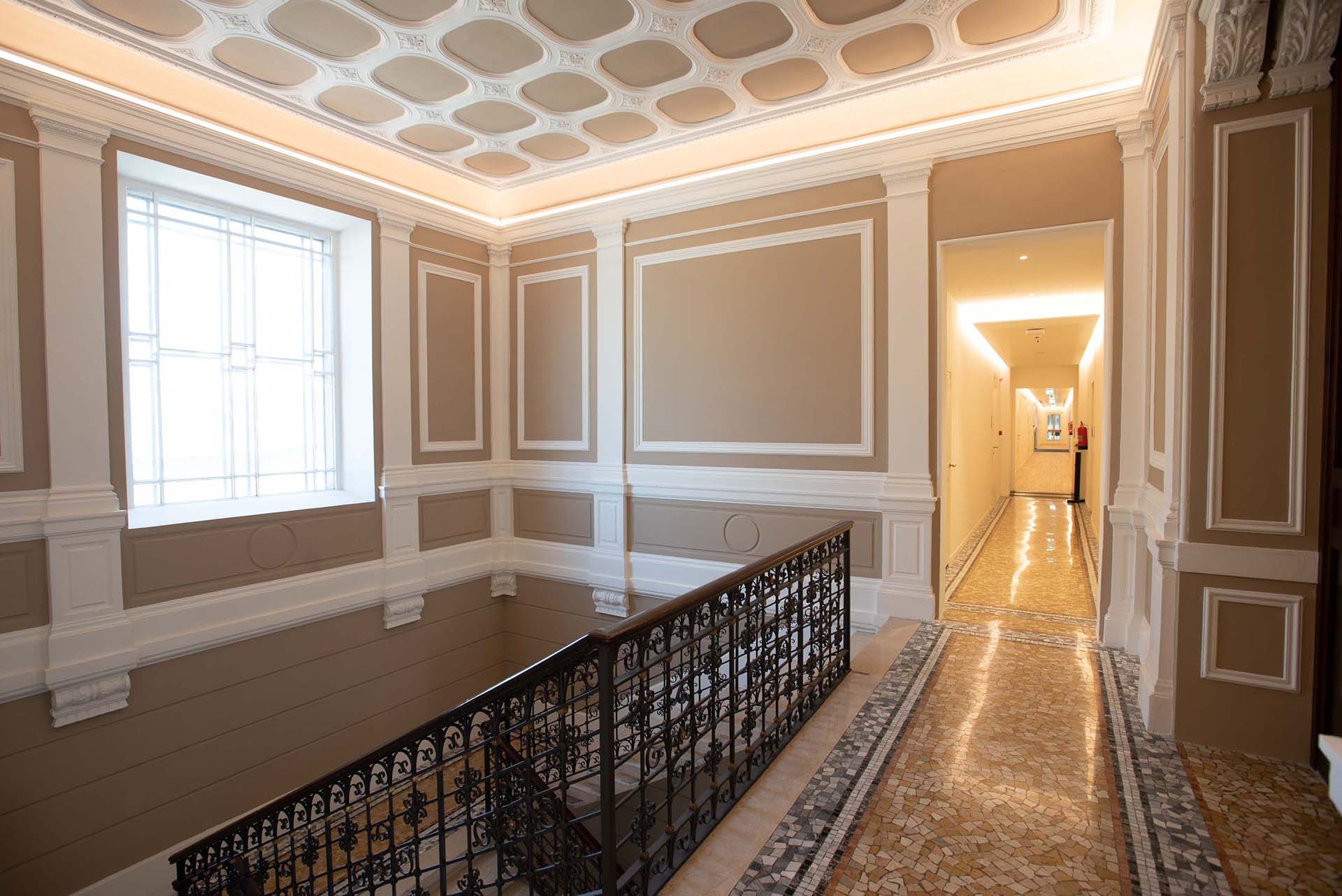
Interiors of the department of Design
Source: department of Design website
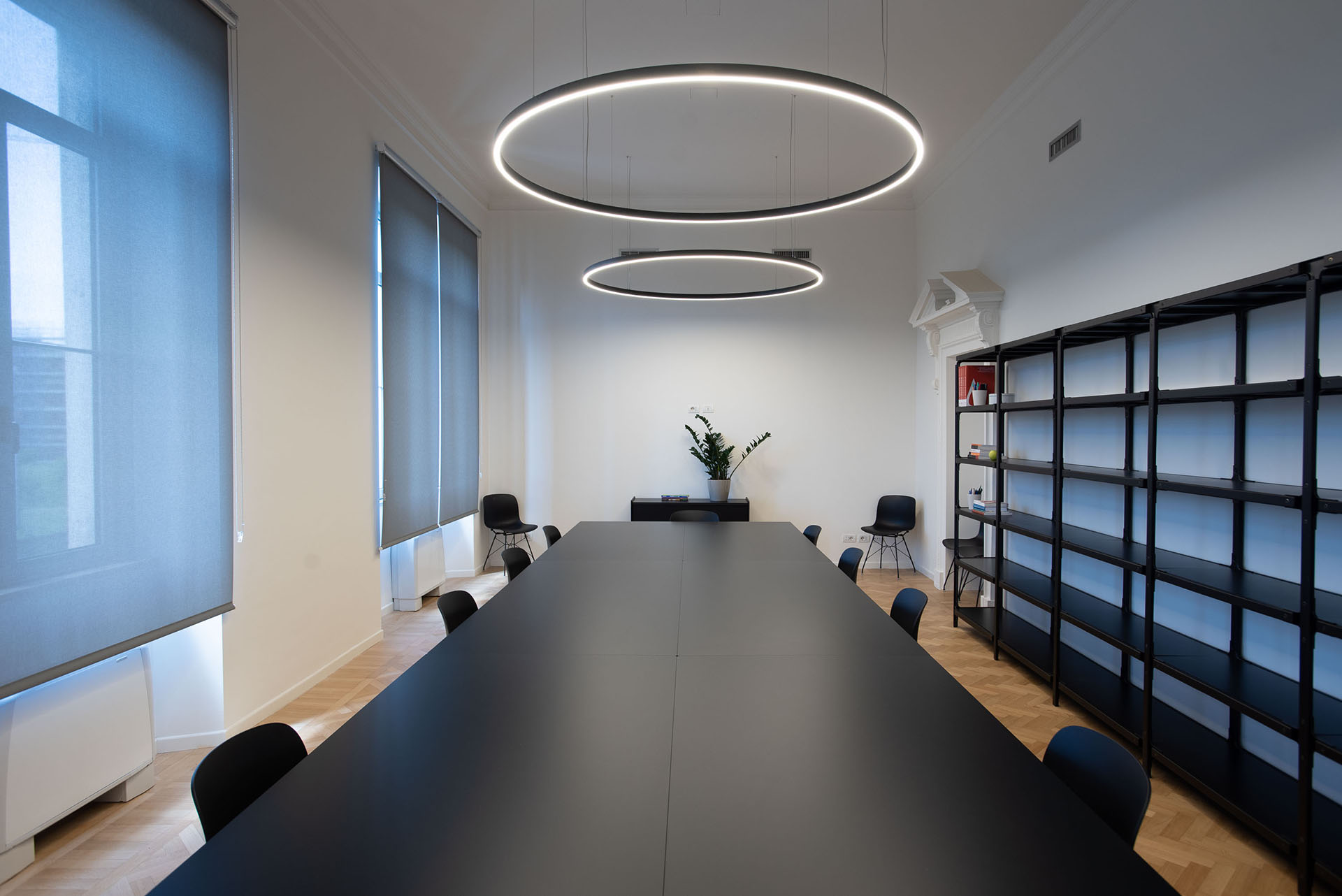
Interiors of the department of Design
Source: department of Design website
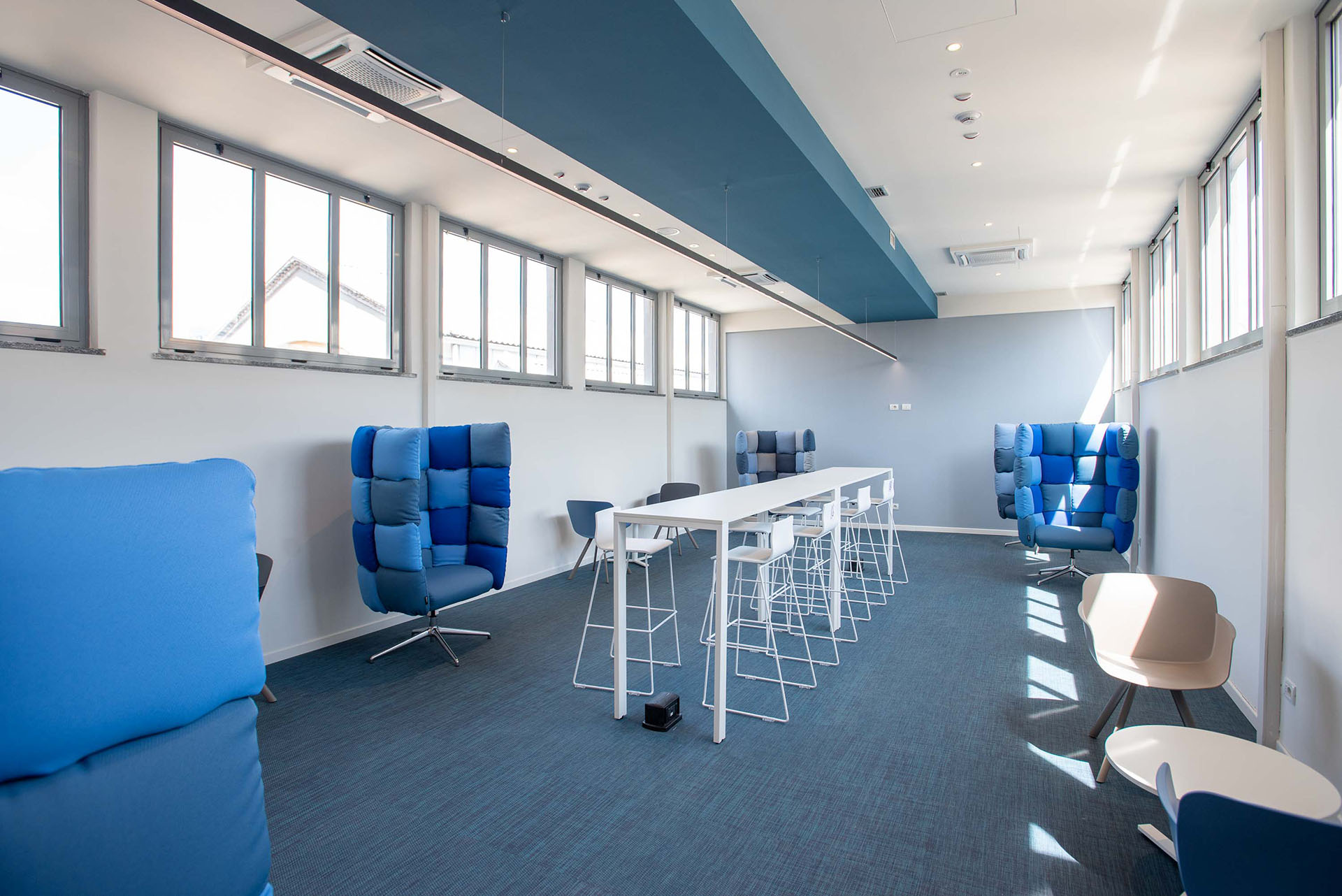
Interiors of the department of Design
Source: department of Design website
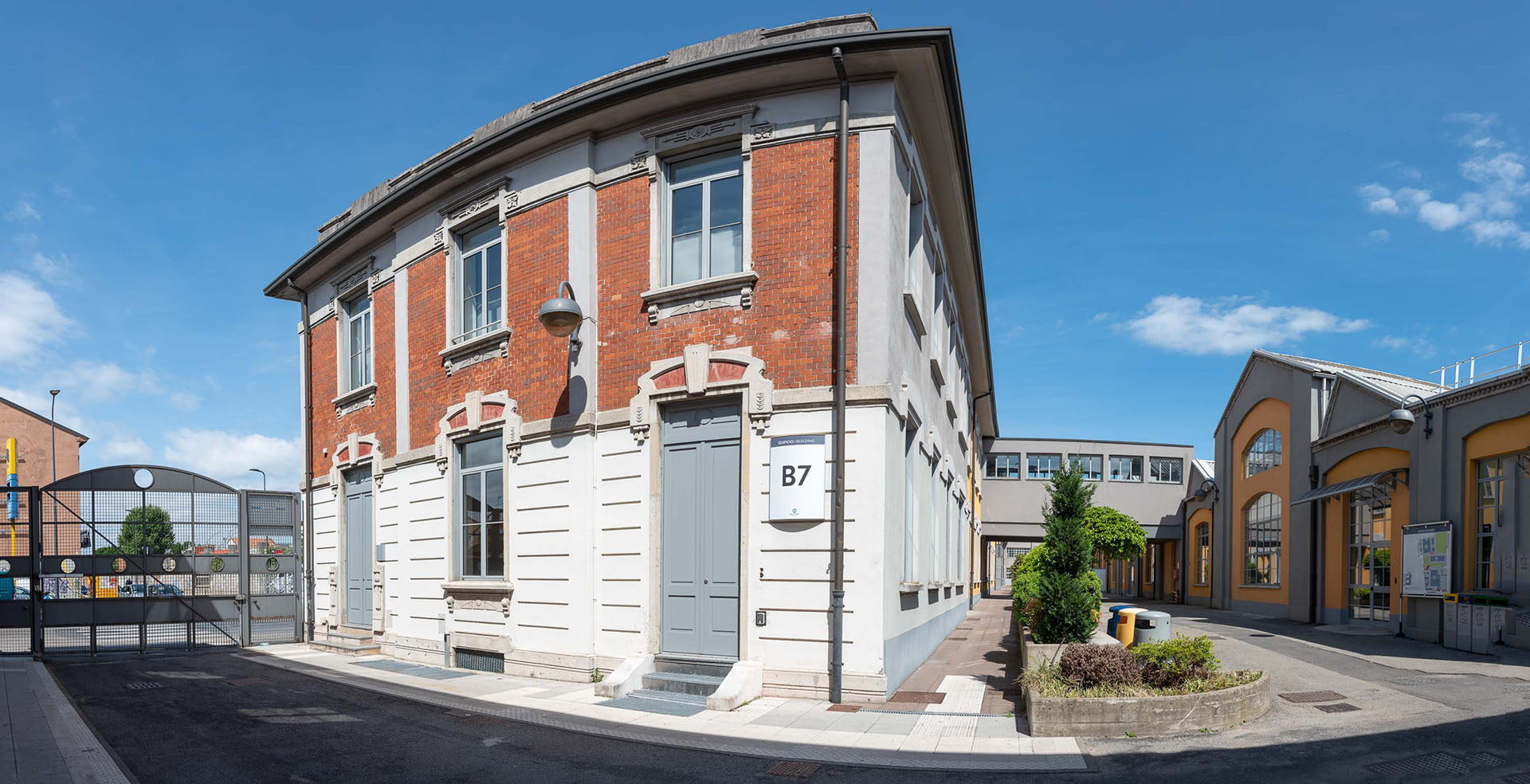
Exteriors of the department of Design
Source: department of Design website
Registration
Registrations are now open!
Register on EKSIG 2023 Conftool and register as a participant once inside the platform. Note that you will be required to upload your passport scan (for EU citizens also ID is allowed). At the end of the registration, you can pay by credit card directly on the platform (via PayPal) or arrange for a wire transfer, considering that the fees are your charge.
Please note that each accepted paper to be published needs to have one paying author. Below are the registration fees.
Early Bird Registration (7th April – 6th May)
- Regular: 390 EUR
- Concessions*: 320 EUR
Standard Registration (7th May – 31st May)
- Regular: 490 EUR
- Concessions*: 420 EUR
*Concessions include confirmed student, PhD student status and DRS members: in the registration you will be required to upload a document, together with your ID, to prove your status.
The conference fee gives you access to the following:
- Abstract publication
- Full paper publication (only digital)
- Presentations
- Keynote speeches
- Networking and discussions with other researchers and participants
- Social dinner on 19/06 evening
It will also be possible to purchase a guest ticket at an additional cost of 80 euros, which includes participation in the keynote speeches and the social dinner on the 19/06 evening.
You are welcome to attend the conference without presenting a paper; the participation fees are the same as if you had presented a paper.
If, as an author, you have several papers selected for publication, please note that for each paper to be published, it needs to have a unique paying author. This may be one of your co-authors.
If it is the case that no other author is on the second paper or co-authors are not attending, please get in contact with us (mail to: info-eksig2023-design@polimi.it) to discuss second paper rates.
Submit
For EKSIG 2023, we invite the submission of full papers (4000-5000 words) that offer new or challenging views on the conference theme. The papers will be selected through a double-blind peer-review process by an international review team.
We invite contributions from creative subjects and other disciplines, e.g. design, architecture, engineering, craft, media, HCI, performance, music, fine art, curation, museology, archaeology, philosophy, knowledge management, education, health, cognitive science, sensory studies and other fields that are concerned with collaboration in research and in creative and professional practice.
Please submit an anomymised version of your full paper of 4000-5000 words according to the attached template.
[LINK TEMPLATE]
To submit a full paper contribution, please register on EKSIG 2023 Conftool.
Key dates
- June 2022 – Call for Papers
15 January 2023Extended deadline: 27 January 2023 – Submission of full papers- 20 March 2023 – Notification of acceptance of papers
- 30 April 2023 – Submission of final revised papers
- 19-20 June 2023 – Conference
Organisation
Programme Committee
Silvia D. Ferraris,
Politecnico di Milano, Italy
Valentina Rognoli,
Politecnico di Milano, Italy
Nithikul Nimkulrat,
OCAD University, Canada
Camilla Groth,
University of South-Eastern Norway
Scientific Committee
Camilla Groth,
University of South-Eastern, Norway
Carla Langella,
University of Naples Federico II, Italy
Eujin Pei,
Brunel University London, United Kindom
Louise Valentine,
The Design Journal, United Kindom
Lucia Rampino,
Politecnico di Milano, Italy
Manuela Celi,
Politecnico di Milano, Italy
Nithikul Nimkulrat,
OCAD University, Canada
Owain Pedgley,
METU, Turkey
Silvia D. Ferraris,
Politecnico di Milano, Italy
Valentina Rognoli,
Politecnico di Milano, Italy
Venere Ferraro,
Politecnico di Milano, Italy
Martínez Torán Manuel,
Universitat Politècnica de València, Spain
Youn-kyung Lim,
KAIST, Republic of Korea
Jouke Verlinden,
University of Antwerp, Belgium
Organising Committee
Francesca Mattioli,
Politecnico di Milano, Italy
Sofia Soledad Duarte Poblete,
Politecnico di Milano, Italy
Alessia Romani,
Politecnico di Milano, Italy
Caterina Dastoli,
Politecnico di Milano, Italy
Francesco Leoni,
Politecnico di Milano, Italy
Contacts
Proceedings
Papers selected for presentation at the conference are published in the conference proceedings: an abstract booklet with an online publication of the full papers, the preferred format of the DRS. As in past years, the organisers will collaborate with an appropriate journal to publish selected papers from the conference as a special issue.


